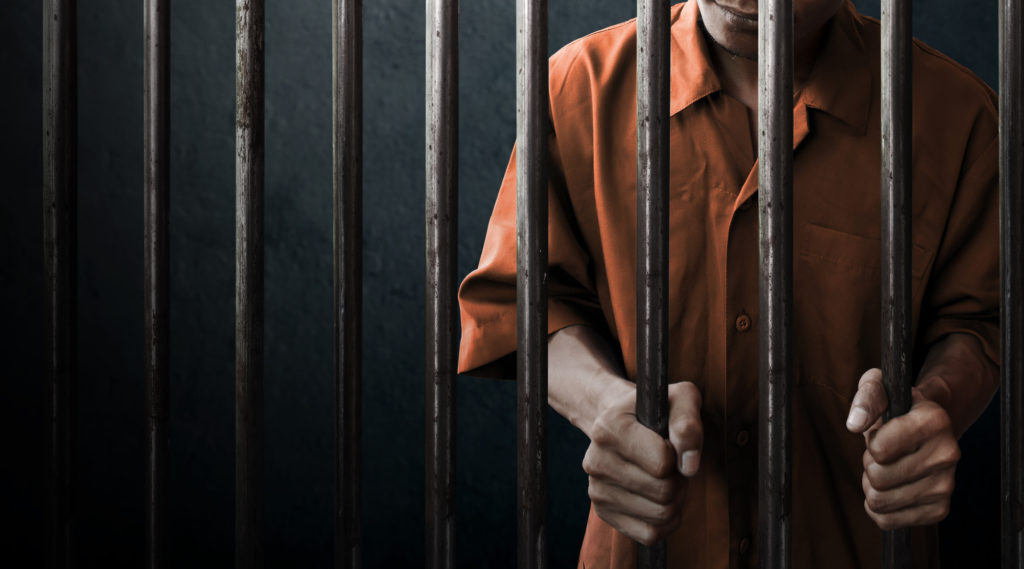 Crime a
Crime a
Nobody wants to go to prison–but a large portion of the U.S. population still ends up in there.
707 out of 100,000 people are incarcerated in the United States. In Germany, it’s 76 per 100,000 people. In China, it’s 124.
The numbers are clear: Compared to other countries, America is the best at locking people up. On top of the high incarceration rates, the majority of the people behind bars are poor and black.
How did we get to this point? Why do so many people go to jail in the U.S.?
Let’s take a look at some of the top reasons for incarceration in the United States.
Top Reasons for Incarceration
Even with only 5% of the world’s population, America holds over 20% of the prison population.
What are the causes of mass incarceration? And why are American incarceration rates so high?
Here are some of the major factors involved.
1. Drug Crimes
Before the War on Drugs in the 70s and 80s, America’s incarceration rate was much different. 150 out of every 100,000 people were incarcerated–which is more comparable to other wealthy countries.
Today, about half the arrests are for drugs. Half of those arrests are for marijuana. The U.S. has much tougher drug laws and longer sentences for both violent and non-violent drug offenses than other countries.
Whether it’s selling drugs, using drugs, or being in possession of a drug, America’s high incarceration rates have a lot to do with marijuana and other illegal substances.
This is also a driving factor behind the high concentration of black people in prison. A black individual is 3.7 times more likely to be arrested for possession of marijuana than a white person–even though both demographics use marijuana at the same rates.
2. Property Crimes
Property crimes come in a close second to drug offenses.
A lot of different crimes fall under the title “property crimes.” But they all involve the theft or destruction of somebody else’s property. These crimes include lower-level offenses like shoplifting or vandalism as well as high-level crimes like armed robbery.
Here’s a rundown of the different property crimes.
- Vandalism: When an individual destroys, defaces, or otherwise damages another’s property without their permission.
- Theft: The act of intentionally depriving another of their property. This can also fall under robbery and burglary.
- Robbery: Using force or the threat of force to take money or property from another individual.
- Burglary: The unlawful entry into a home or other building with the intent of stealing property from another.
- Shoplifting: Taking or concealing merchandise from a retail establishment or store without intending to pay for it.
- Arson: Intentional burning of any structure or land. If it’s an inhabited building, causes harm to a person, or is intended as a form of insurance fraud, the offender will be given a harsher sentence.
A property crime doesn’t always require a perpetrator to harm somebody or leave with stolen goods. All it takes for a burglary conviction is to enter unlawfully with the intent to commit a crime.
This wide net means that a lot of people are charged under property crimes–and a number of them end up in prison because of it.
3. Pleading Guilty
This applies to inmates regardless of the crime committed: Pleading guilty in court.
Very few people currently in prison ever had a trial. Over 95% of criminal cases are resolved through a plea bargain instead.
Defendants will often plead guilty or settle for a bargain, even if they are innocent. This is because many lack the fundamental resources for good public defense–another reason why low-income individuals are incarcerated at a higher rate.
Some prisoners may have even been forced to plead guilty. There’s a long history of people being exonerated because they were forced to confess by the police, despite the fact that they didn’t commit the crime.
Because of punishing drug laws and higher mandatory minimum sentences, the prosecutors have more power than ever before. More and more cases are resorting to plea bargains to avoid losing the trial–even if the defendant is innocent.
If you’ve been charged with a crime, you need to protect your legal rights to avoid falling into the same trap. This law firm provides a free consultation and evaluation so you can avoid giving up your rights in court.
4. Paying Bail
The bail system keeps another 500,000 people in jails who are still awaiting trial.
Some of these people might be innocent or could get away with no time in prison. But because they can’t afford to pay bail, they can stay imprisoned for months.
Judges used to allow most people who committed nonviolent offenses–even those who couldn’t afford bail–to be released until their trial. Now, up to 50% of people could remain behind bars because they couldn’t pay amounts of $2,500 or less.
For those who can’t afford the bail price, they have to turn to bondsmen for help. This is a business that takes in almost $14 billion a year and can put people seeking release from prison into debt.
5. Unemployment
Another reason why the incarceration rate remains so high is the cycle of unemployment.
Getting a job with a criminal record isn’t easy. More than 60% of formerly incarcerated people are out of work one year after being released.
Many prisoners were poor to begin with. But because of their incarceration, they face new barriers to employment. They might also be barred access to certain benefits or food stamps.
This leads to a high risk of heading straight back to prison. Within three years of release, almost 70% of prisoners are rearrested.
Why Do People Go to Jail?
From the type of crime committed to the offender’s income, these top reasons for incarceration aren’t always fair. The system is built to imprison more people and keep them behind bars for longer than other western countries.
Whether it’s a violent or nonviolent offense, there are a lot of ways you could end up imprisoned in the United States–and it’s not always easy to get out.
Looking for more interesting facts and trivia? Check out some of our latest articles.

